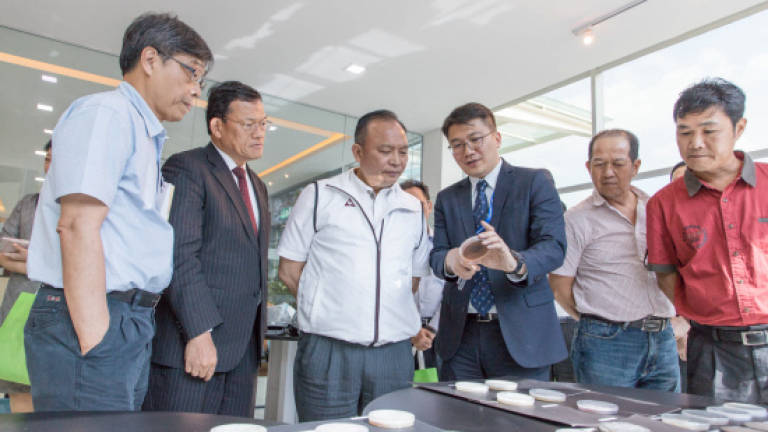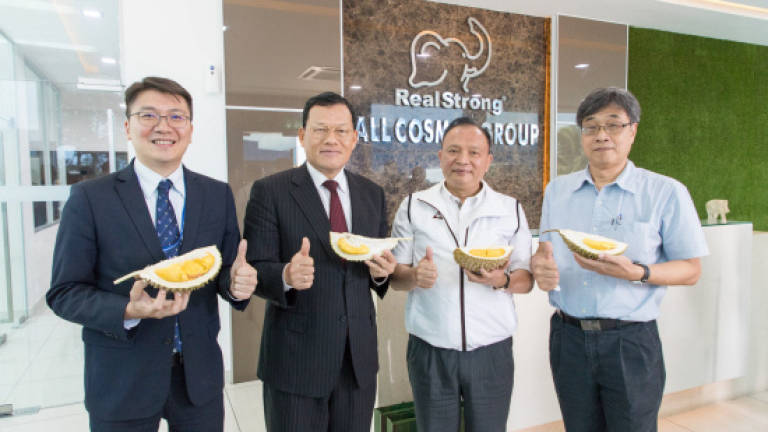Combine efforts for mutual benefit


Taiwan’s New Southbound Policy (NSP), implemented a year ago, demonstrates Taiwan’s proactive approach towards integrating with the international community. The country’s government expects to increase efforts and resources to promote cooperation with partner countries such as Malaysia, for mutual benefit.
Having recognised the importance of agricultural development, the Taiwan government will soon be implementing its flagship project, Regional Agricultural Development. The aim of this project is to better ties among its partner countries so as to enhance the exchange of expertise and technology, sustain agricultural and rural development, safeguard food security, and boost bilateral agricultural investment and trade.
Malaysia is a very important agricultural trading partner of Taiwan and based on the countries’ close bilateral relations across its public and private sectors, Taiwan’s Council of Agriculture (COA) looks to working with Malaysia to further strengthen its partnership in agricultural, trade and investment areas.
A win-win collaboration
Currently, the COA’s Taiwan Agricultural Research Institute (TARI), in collaboration with several universities, is setting up a simulation base comprising high-tech greenhouses in Malaysia. TARI is looking forward to working with Malaysia to improve its agricultural value throughout the entire process covering seedlings, agricultural machinery, materials, facilities, techniques, quality control, even enhancing the agricultural production and increasing farmers’ income.
In recent years, the COA has been actively implementing “smarter” agriculture related programmes that touches on the Internet of Things (IoT), Big Data and agricultural facility and breeding technology among others, in order to solve the shortage of labour and to adapt and mitigate the impact of climate change.
By Taiwan sharing knowledge and know-how about its advanced agro-processing technologies and value-added functional crops, it might be beneficial for Malaysia to promote its investment in high value-added biological raw materials and agricultural products, as well as enhance the development of related bio-tech industries.
In view of this, the central agricultural authorities of both countries could congregate to dialogue and exchange views on agricultural policies, cooperative projects and agribusiness ideas, as well as implement projects pertaining human capacity building with regards to agricultural technology and modernisation - to benefit both nations.
Growing the Halal food market
Taiwan and Malaysia are both known to benefit from its high-quality agricultural produce. In fact, Taiwan has put in additional effort to enhance its food processing technology to improve on its food supply chain and traceability.
Hence, stronger partnerships could be forged for the betterment of both countries, particularly in the food industry, and since Taiwan is known as producers of high quality food, perhaps guidance in attaining Halal certification by the Department of Islamic Development (JAKIM) Malaysia could be mutually beneficial.
Currently, JAKIM recognises the Taiwan Halal Integrity Development Association (THIDA) as a qualified certification-issuing organisation and one that is responsible for the related certification in Taiwan. The Taiwan government is said to have already initiated several projects to explore and expand its share of the Halal market.
Future plans for Taiwan in the food industry - to strengthen it ties with Malaysia in utilising high quality materials and using modern-day methods and more profitable techniques of food processing and safety management, in the hopes of jointly producing high quality Halal food of competitive pricing to supply the needs of the global Halal market.